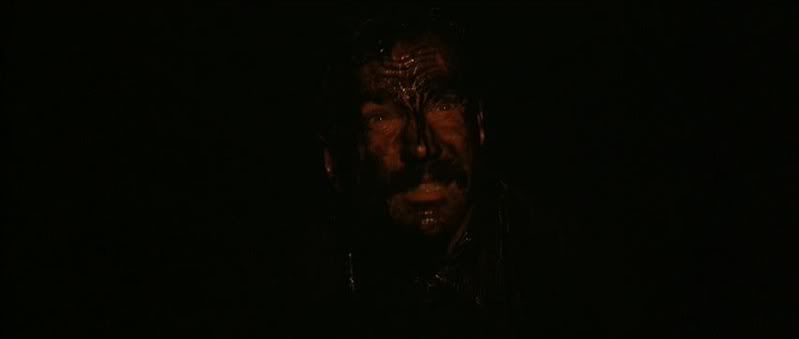Friday, October 31, 2008
Wednesday, October 29, 2008
VINYL IS PODCAST #4: Burning Through Coen Country
by Ryland Walker Knight and Mark Haslam
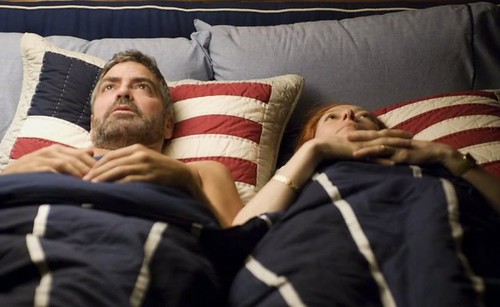
[Podomatic stream]
[Direct audio download]
[iTunes subscription available]
[Simple syndication subscription]
RWK here. Tonight Mark and I saw Burn After Reading at the Cerrito Speakeasy's 2-for-1 night where we enjoyed not just the film but some beers and some yummy 'zza. We decided that it would be a lot of fun to record some thoughts all immediate, so we tried our darn'dest to get back to my computer as quick as public transportation would aid us. It took a little longer than expected, and then we got sidetracked with songs, so our energy level was at a delirious low by the time I hit the record button. This episode is easily the funniest because it's a couple of tired goofballs joking through some scattered thoughts about a lot of things without much coherence. (In fact, Mark takes us on one helluva left turn at one point.) If anything, we hope this gets you goofin in the right way so that, while I may reiterate a lot of what I typed at Rob's place, and dominate our discussion, you might make your own sense of my/our argument in favor of this nasty, sad, hilarious film. That, or, you know, you could read this, maybe, since I share some thoughts with that smart alec. Or, failing purchase there, there's this witty dude, too. Finally: the songs in this episode speak for themselves, and you can find them here and here if, for some silly reason, you don't already have them. (Full disclosure: The Misfits track is all Mark, and, yes, I had to go find it to compliment our efforts here.) Oh, and, yeah, here's the quote from Cavell, ported over from this old post, and this book.
A summary of a film comedy written and directed by Preston Sturges suffers most in missing the continuous, virtuosic precision and intelligence of his dialogue, in no case more than in that of The Lady Eve. Sturges is one of the most remarkable mids to have found expression in Hollywood. Not until after the end of the Second World War, with the reception in America of the outburst of filmmaking in Europe -- including films of Truffaut, Godard, Fellini, Antonioni, Ingmar Bergman -- did an American audience become accustomed to finding a film written and directed by the same person. And Sturges' tight corpus of comparatively small-scale films occupies a treasure place in the hearts of those who care about the world and art of film; for example, beyond The Lady Eve, there are Sullivan's Travels and The Palm Beach Story and Hail the Conquering Hero. An instance of this esteem is recorded in the title of the Coen brothers' recent film, O Brother Where Art Thou? (with George Clooney and John Turturro), one of the most notable films of the past few years. It is worth taking a minute to say how that title inscribes a Sturges film.
The hero of Sullivan's Travels (played by Joel McRea, who is also the male lead in the remarriage comedy The Palm Beach Story, an interesting actor of considerable range, but less well known than the male stars, his natural competitors, of the remarriage comedies of the period discussed in this book) is a filmmaker whose great success is based on making thrillers with little intellectual or political content, and who wishes to make a film about something true and important, about suffering. The travels of the film's title are those taken by this director, who escapes the world of Hollywood escape in order to experiece the suffering of, after all, most people in the world, in preparation for making his important film of witness. The narrative takes him to the bottom of the world, in the form of being falsely convicted of murder and sentenced to a southern chain gang, where he discovers that the laughter provided by a Hollywood cartoon may provide the only rare moments of respite in a stretch of fully desperate existence. He contrives to be recognized in this place of anonymity, and returns to Hollywood to apply his hard-won insight, which means leaving unrealized his film of suffering.
The title of his projected work was to be O Brother, Where Art Thou? The Coen film, which opens in a southern chain gang, realizes this unrealized work by, as it announces, adapting (or more accurately, silently remembering names, and imaging sequences to realize them, from) episodes of the Odyssey (the Sirens, the Cyclops), taking as the overall adventure the return of an extraordinarily resourceful, or resilient, man to his native town to reclaim his sought-after wife (and children). The challenge the Coens take up, or depart from, in Sturges' fantasy of witnessing suffering, and which they seem to declare as part of their film (indeed of their corpus of fascinating films), is neither to record nor to distract from suffering. It is rather to witness, on the part of people who recognize, despite all, that life may still hold adventure, say hold out a perfectionist aspiration, but that to sustain a desire to meet the fantastic, unpredictable episodes of everyday modern existence, one must, and one can, rationally and practically, imagine that one will, at need, discover in oneself, in the register of passion, the resourceful persistence of Odysseus, and the mixed, but preponderant, favor of the Gods, call it fortune.
I hope Eileen likes some more eyes, cuz, well, I want to share a couple links to some smart things she's written recently: her review of BAR and a defense of The Simpsons as, well, a picture of faith: "Because The Simpsons is more that just a great show, perhaps the greatest TV show ever made. The Simpsons is bigger than that. It’s a model of the world as observed by a god that loves humanity, if such a thing were possible, which Chistianity claims it is."
Posted by
Ryland Walker Knight
at
11:45 PM
0
grooves
![]()
Labels: America, Coen Brothers, linkage, MH, morals, rwk, Stanley Cavell, VINYL IS PODCAST
Tuesday, October 28, 2008
Found Facts. September 2008.
by Ryland Walker Knight
It's tough to trim a life into ten minute segments. But, even though this episode (installment? missive?) has less jokes than its predecessors, I hope and trust that this assemblage will make you giggle -- here and there, if not everywhere. And so it goes. Another month and another friend leaves the Bay. Unfortunately, I lost a lot of my good Stevie found facts, which forced me to play with that absence, or that theme, or something. Indeed: September is some weird lacuna for a few of us that seems distant and empty. Perhaps the word I'm searching for is "liminal." Then again, isn't that just life? Everything transition? Is that a developing FF theme? Yes? Yes. Trying to grab ephemera. Trying to find fun here. It's tough, sure, but, as Cam says, "I'm enjoying this." Please: join us by the fire. Burn forward and lick the world like a flame. Also, dance. Please. Yes!
__________
The Juan Maclean - Dance With Me: [zshare] and/or [imeem]
[To whom it may concern: If you'd like me to remove these song files, let me know. I'm gonna trust it's cool for now! To the others it may concern: go buy Less Than Human, like, three years ago.]

Sunday, October 26, 2008
Meet me at the water.
by J.D. Knight

Posted by
Ryland Walker Knight
at
11:00 AM
0
grooves
![]()
Labels: appreciation, blogging, family, Found Facts, guest, liquids, nature, rwk
Saturday, October 25, 2008
Dump like no other.
by Ryland Walker Knight
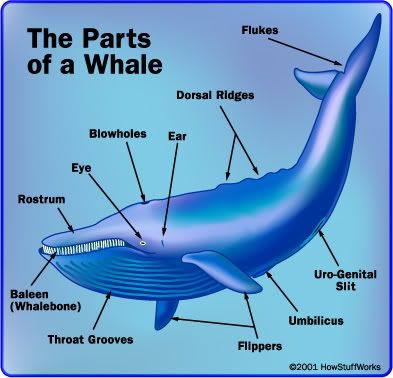
The last bit of fiction I wrote, from March 2006, can be found over at blogging buddy Jürgen Fauth's new website, Fictionaut. My "Author's Note" reads: "I wrote this during my first whirl through a year in New York. Evidently I felt crowded by trash." Click here to read the story.* Unlike the novel that inspired the name of this blog, this story is not really "about" me, which, I think, makes this little thing a whole helluva lot better, if equally a reminder of how much I feel I've grown as a writer-thinker-person. Jürgen invited me to join the site a couple months ago but I hadn't really played with it until today. I updated the profile with some words you might want to read (as well); and, to save you the trouble of clicking this link, I'll go ahead and post them here, too.
My name denies ethnicity at every six-letter stop but I still feel my white skin a needless arbiter, a lie and a limit. I like words, liquids and films -- not necessarily in that reverse-alphabetical order. Rivers are a favorite space, even a lifestyle, as much as a favorite metaphor; and I wish I was in them more and more. For so long I wanted to sing of myself, and I still do, but, as I am plagued by respect for the smartees who came before, I find myself sitting in front of blank pages far too often, dreaming of ways to excise elements of me from my words. Still, I persist. It just takes me a while, a little while longer. The process is the adventure, too. The toughness is to keep words from dying, inert, black on white and staid. The goal is to keep the picture alive and dancing. Thus, a certain navigation of abnegation and disclosure is necessary; this movement between avoidance and acknowledgment. I am more you here than me where I am but untethered letters. Especially in a flux like the internet, this Spinozian series of tubes linking disparate zones and voices and images and hearts and fingers and eyes and organs. My job, such as it is (or may be), is to fold all this into some kind of sense, a meaning made through concretion and flight, through attention, through realization of difference and separation and multitudes bursting past the banister (or, simply, the keyboard). Also, I like to laugh.
* Jürgen reminds me: "Fictionaut isn't public yet, so unless your readers have invites, they won't be able to click through... We're gearing up to change that soon." We look forward to it. If any of you silent readers out there are dying to read these hidden words, let me know: an arrangement can be agreed upon while we wait for the beta phase to end.
Friday, October 24, 2008
In defense of Ballast
by Steven Boone

I suspect it was the story that had some of the folks in the Film Forum audience sighing, whispering and even snickering uncontrollably. Story-wise, Ballast can be easily mistaken for an entry in the Why We Be Black genre—films which depict underclass African-Americans scratching and surviving and tearing each other apart. Such films are said to exist mainly for the delectation of white liberals who like to think of poor blacks as lovable to the degree that they are irrational, impulsive and self-destructive. Mighty Joe Young in a do-rag. The fallacy of placing Ballast in this genre is as tragic as the critical backlash against Steven Spielberg’s The Color Purple adaptation, which reduced that film’s towering humanism to Song of the South T-N-T.
The first time I saw Ballast, knowing nothing about its maker, I spent no more than a cumulative total of five minutes thinking about the race of its characters or creator. Whenever little Lawrence wielded a gun that weighed more than him; when early on, James sat brooding, an inscrutable black hulk; when Marlee fumed and fretted over a tragic turn of events with the all the negro histrionics of Robert Downey, Jr. in Tropic Thunder — yeah, I thought about race. But that was it. Otherwise, the ethnicity of Marlee, James, and Lawrence rarely factored into my appreciation of their loss, desperation, insecurities, hopes and contradictions. These were Americans, these were human beings. I expect a white upper middle class author on a black working class subject to get some things “wrong”—that’s the way it is. What I hope for in such a film is an honest effort to capture something true.
[A note from RWK: Idiot me missed Lance Hammer's film when it played at the luxurious Sundance Cinema last week. Click here to see if/when it will be playing near you. Hopefully the film will find its way to my eyes and ears soon. With all the love Steve's given this film, it's hard not to kick myself in my butt. But, then again, I've been busy with other cine-stars I'm more than happy to have encountered.]
Reminder: Mirror tonight at PFA.
by Ryland Walker Knight
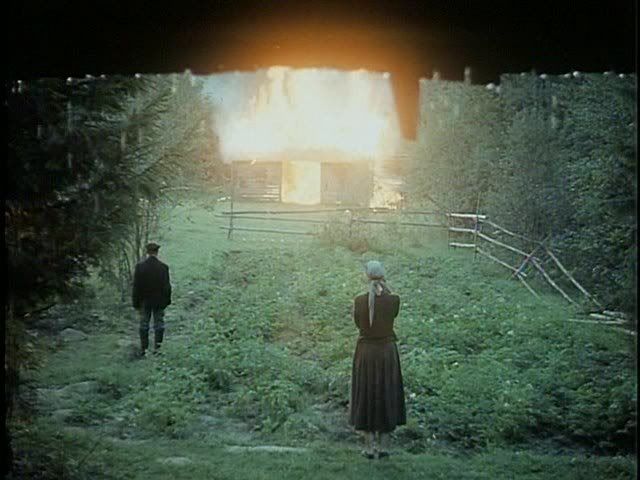
Tonight at 6:30 to be precise. Why does this get special mention among all the cinema I've been enjoying recently? Well, because. Just because. Because it's great; it's where the water's at; it's beautiful; it's a favorite. And I can link to some stuff I've written before on this masterpiece.
- "More Eternity. More Mirror talk." [VINYL]
- "Making the Mortal Immortal" [Reverse Shot]
- And there's also Steve's Mirror mashup. [youtube]
Do yourself a favor if you live near by and see one of the great things tonight.
Posted by
Ryland Walker Knight
at
10:30 AM
0
grooves
![]()
Labels: Andrei Tarkovsky, blogging, linkage, PFA, rwk, SB, shameless shilling
Tuesday, October 21, 2008
Bite me. New York City keeps calling.
by Ryland Walker Knight
Abel Ferrara proves "cool" still happens. It's about strength. Vitality is rare these daze. I know I'm fighting to find it in me every ordinary day down the line. I guess anybody reading this in NYC already knows: go see Mary, like, yesterday over here. [via Ray Pride, x-posted on fN!]
Posted by
Ryland Walker Knight
at
7:00 AM
0
grooves
![]()
Labels: Abel Ferrara, blogging, conversation, freeNIKES, integrity, liberty, morals, movie magic, rwk
Monday, October 20, 2008
Late night exchange: How about this? Speed Racer kinda makes me weepy.
by Ryland Walker Knight (and Rob Humanick)
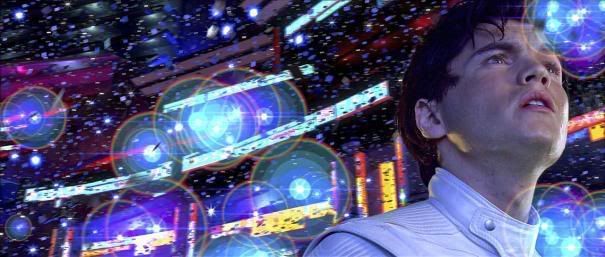

Over on that surprising trap we've all embraced (for the most part; against better judgment), I wrote a "status update" that went like this: "-- how about this: _Speed Racer_ kinda makes me weepy. Were it not for that fucking Spencer Breslin shit and his chimp-kick, it would verge on great." The ensuing exchange with colleague-buddy Rob Humanick (via "comments" upon this "status"), makes me realize I definitely think this thing is assuredly great, precisely because it is complicated and problematic and weird and absurdly uneven--and beautiful to behold. Here 'tis:
Rob: I'm still working on my thoughts for a piece at The House, but I'd absolutely call it great. I look at Spritle and Chim-Chim as surrogates for the Wachowski's; themselves two kids of crazy antics, absorbed in their own fantasy-land, sometimes annoying (like when Racer X comes to their home -- eesh), but absolutely necessary. And 4 times out of 5, I think they're hilarious.
Seriously: one of the best "kids" films ever. Years from now it'll be appreciating. And I'm downright sick of the shallow write-offs given to the cast. Can we please stop reviewing Episode I, people?
That whole climax is incredible, no doubt. I can't understand why more critics aren't behind this as a beautiful meditation on the role of the artist in society. It's completely personal, and, equally important, free of irony.
Ryland: yup yup. the climax MOVES me.
I dig that reading of the idiots (their LOOK MA stands out against the --blank slate-- of everything/everyone else) but I still can't shake my irritation at their hot air. There's too much. And when you've got so much other great stuff -- so much BEAUTY -- it's hard to be generous to that kind of jumping up and down. If anything, and this is something, I'm certain: they're fucking weird. And weird here is good. Great, even. Spin me, spiral of light!
Rob: It really is videogaming technology used in service of art. And that last shot of the Mach 5's melting wheel is worthy of Cronenberg. My interpretation of his ridiculously wonderful front-tip balancing act post-Beyond the Infinite final lap cum victory, is that the artist is signing his work. And that swirling shot of the car spinning as if on a tie-die canvas.
My favorite quote about the actor who plays Spritle is that he's a 40 year old trapped in a 10 year olds body. Totally weird. Papa Racer says it best: "You're too *pale*!"
Ryland: Yea, that pirouette is another trace Speed leaves on the track (on life!), and that drip is his joy come and spent, another mark left. It's the flash of success that wakes him. Success, of course, being his route to making the world's passage a little easier--if only for the moment. And what a moment! All those pinpoints reflecting, all those bulbs burning. I like to think of the flash as always single use, a tiny life begun and ended in an instant. All those lives out there looking to be lifted!
SO, when the idiots interrupt our revelation, I cannot take it. I revolt. Lemme get consummation! I guess that's the point, tho, right? It's a "kid" movie after all.

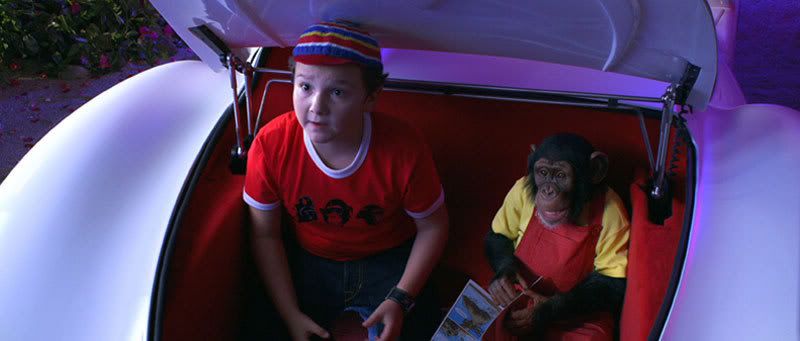
Then again, this makes me weepy too: Daney on Garrel.
Posted by
Ryland Walker Knight
at
10:00 PM
1 grooves
![]()
Labels: animation, beauty, blogging, digital trends, guest, linkage, Philippe Garrel, rwk, Serge Daney, Speed Racer, The House
Friday, October 17, 2008
Considerable linear extent in space #1: Seeing it equals believing it over here.
by Ryland Walker Knight

After getting home all mad at baseball, I started writing about basketball last night. You can read the whole thing, and track its progression, as I hope it gets better, as this one is a jumble, as the season develops and wears on and excites us all, over at freeNIKES! There will be poaching, there will be aping, there will be fancy talk, there will be fun, I trust, and little blood. However, as I said last night, certain sports happenings can get my idiot venom foaming. Like, I dunno, Boston winning. One thing I forgot to mention in depth in the first installment (perhaps this will be a focus for #2) is how my plan to avoid the Celtics and KG's new crazy and all that's wrong there got upended this past week when Bill Walker went a little nuts on the Rockets, instantly endearing him to me; and, you know, Darius Miles. I mean: Darius Miles? Bah. Here's a taste of what I want to do:
1. Follow a few personal obsessions, which are by no means "original" or even "particular to me," like Anthony Randolph, Kobe's legs (pace Tex), Mike Beasley's goof town lifestyle, Rudy Fernandez vs Greg Oden in ROY race (at least on the Blazers), how the Blazers should march through the world heads held high, Kevin Durant's eventual and terrible and hug-him-please cries on the inside under his (we hope) growing ferocity in the fourth, hating the WNBA, hating the Celtics but loving Bill "Sky" Walker, Houston getting big with Ron Ron up front and a vegan at the point, A.I., Melo, J.R. Smith, Josh Smith, Gay-Mayo, the Spurs devolving, the new Pistons, D'antoni running the Animal Apple in 7 sex or less, Chicago's all-backcourt starting five, Joe Alexander slaying the midwest AZN broads (they got those, right?) Yi left behind all clamoring, Yi making jokes with Vince about foolin'em all, LeBron stomping, Caron slicing, D-Wade getting anywhere at any moment to put up any shot possible ignoring the Matrix of possibilities behind him, Larry Brown shackling another flier in GW, Rick Carlisle making the Mavs that much more intolerable, somebody (please, somebody) punching Carlos Boozer's ugly fucking face, Kevin Love's chin strap and Mike Miller's grease-locks, more Beno Udrih push-offs, more Julian Wright--period--and Danny Granger, too, the Turkish Delight's inevitable backslide, Brand getting big with Thaddeus, Amare bouncing past everybody and everything when Shaq rides the bench and Nash tires for good, Baron looking to pass all street a lot more, Chris Bosh getting a hair cut or make over or something. [...]
5.i. Ask "What is basketball?" in a different way each time out.
5.ii. For instance, this time I'm trying to show that it's stupid to plan (or even hope) for much when it comes to something (cough, life) with this many variables. You just gotta enjoy this flux of fun.
5.iii. Keep an eye to seriousness within the nonserious discourse of a goofy blog like this one, which may manifest itself in stuff like, yes, naming life a "flux of fun", thereby invoking philosophical premises I find internal but not integral to my understanding of the game and its place as a social function--on the court, for the fans, in pick up, in relation to rap, as ritual, as theatre, as platform for what's bigger.

Wednesday, October 15, 2008
She weaves all things together.
——Mother, now I know where you live.

More soon, once I find the time to actually watch this thing I love. I can't believe I've waited so long. I can't believe this is here and I'm not watching it now. I can't believe the joy of holding this plastic and not knowing when I'll slip the disc in, when I will let the wash fill me, when I might build a new cathedral in words, when I may see these sites anew and fresh, when the water will flow past my fingers and dance on my eyes all sparkles, when we will sing. Soon, we say, soon soon; see the world. Go frolic forth first. The time will present itself, it's there, bubbling, waiting to surface. Come, spirit, out of the soul of me.
[Youtube clip sent my way by Dave Guzman.]
Posted by
Ryland Walker Knight
at
6:46 AM
3
grooves
![]()
Labels: America, blogging, linkage, poem, rwk, shameless shilling, The New World, time
Monday, October 13, 2008
Brief and Preliminary Thoughts on Complications in Synecdoche, New York (and Myself?)
by Mark Haslam
[Note: I guess we were wrong on our podcast: Synecdoche, New York opens in limited release in NY/LA October 24th, with a roll out schedule to follow, thanks to Sony Picture Classics. Still, Mark has successfully avoided spoilers.]
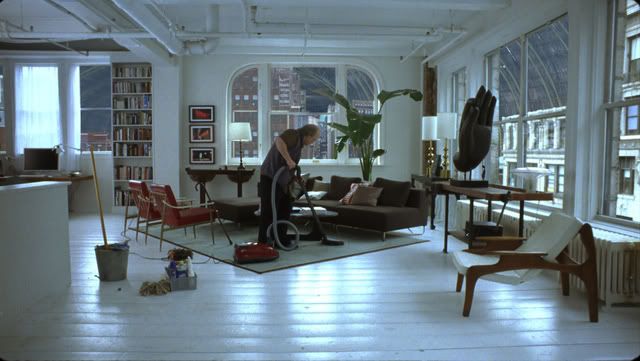
Synecdoche, New York had always seemed to me a great title. Not because of the claims it may make about film or image as inherently synecdochic or metonymic, which does seem just a bit easy, if not facile; rather, I liked it because of the simple play it makes on Schenectady, one that had never occurred to me. (Not like I sit around thinking up every pun possible, but while I'm at it, here's one I kinda dig on: 'fiancee' and 'faience'.) In light of the title, we have to think, in part, of place as a part of its inhabitant, as a part of a person's whole. Here, a place is not made up of humans, or not just, but a human is made up of, among other things, place. The film solidifies this in its presentation of the title, which appears subtilely at the bottom of the screen, as though a mere identification of setting. So 'Synecdoche' is not just a joke about 'Schenectady': synecdoche is the location: the location is representation. It makes sense, then, that Caden Cotard (Phillip Semore Hoffman), the film's protagonist, would spend a majority of his time in (re)building his surroundings as a means of creating something “personal,” a massive self-portrait. The act itself—of building and constructing; of acting in the first place, of performing—is fundamental to the creation of self. However it's also alienating and exclusionary: all relations that aren't Myself and My City are diverted away ('fiancee'/'faience'?). Caden can't commit and can't keep his women from slipping away, obscuring, then dying.
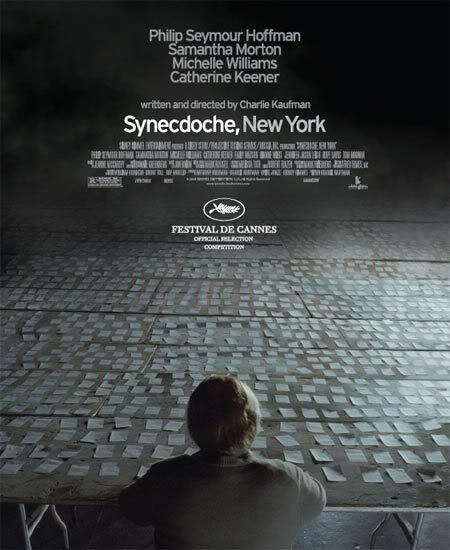 One of the more interesting or, and I hesitate to use this word but here goes, risky elements of Synecdoche is a burning house that nobody seems to recognize as having anything particularly wrong with it. In fact, it's inhabited by Caden's secretary and on-again/off-again lover, Hazel (Samantha Morton). It's the sort of thing that's funny-ish in concept, but (here's why I used it) risks becoming nothing more than Signifier. A house on fire, in this case, could only have meaning. But then Kauffman returns to the burning house, pursues it, prolongs our experience of it—it isn't just a gag, it reappears several times, always in a modified context—almost to the extent that whatever meaning we gave it is emptied out, so that what we see is the inhabitation of a Signifier, much like the process enacted by the title.
One of the more interesting or, and I hesitate to use this word but here goes, risky elements of Synecdoche is a burning house that nobody seems to recognize as having anything particularly wrong with it. In fact, it's inhabited by Caden's secretary and on-again/off-again lover, Hazel (Samantha Morton). It's the sort of thing that's funny-ish in concept, but (here's why I used it) risks becoming nothing more than Signifier. A house on fire, in this case, could only have meaning. But then Kauffman returns to the burning house, pursues it, prolongs our experience of it—it isn't just a gag, it reappears several times, always in a modified context—almost to the extent that whatever meaning we gave it is emptied out, so that what we see is the inhabitation of a Signifier, much like the process enacted by the title.Yet Kauffman only “almost” does this. I mean, he does it, but it gets obscured by everything else he does. (Which doesn't even raise the question, If he hadn't done it, would it be there anyway simply because of the nature of film?) For as much as the film is about building and/as solipsism, it's about time, which like relationships keep slipping away, and death, whose approach never falters. Both are portrayed in a particularly Kauffmanesque structuration, which can jump decades without a flinch. But where this technique was successful in Eternal Sunshine, it's not so much here, because we rely on overt cues to tell us we've performed this temopal leap—things like, “It's been sixteen years.” The structure itself doesn't really communicate the idea of time, and so we feel lost. And it's not a good kind of lost.
Especially given that structures and their construction are such a major part of the film, it's hard to not see this as at best a missed opportunity, at worst as evidence of Synecdoche's ultimate failure: that it doesn't utilize form. No doubt, it's got some great ideas, ideas about space and time which seem natural to film; but they're not put together in any cohesive way. Things are jumbled, uneven. Leaving the theater, I couldn't escape the thought of what would've been if Kauffman had given things more time, allowed the form to unfold itself, gradually over time, so that we feel time slipping away from us as it slips away from Caden, so that the approach of the film's end really is that gradual approach of Death.
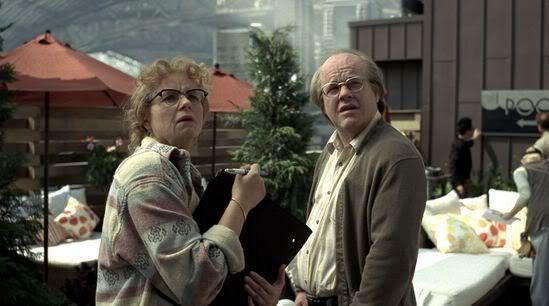
Saturday, October 11, 2008
VINYL IS PODCAST #3: Synecdoche, Eustache
by Ryland Walker Knight and Mark Haslam
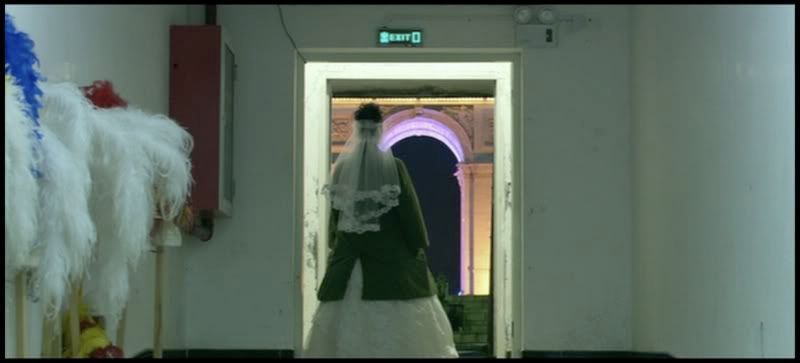


[Podomatic stream]
[Direct audio download]
[iTunes subscription available]
[Simple syndication subscription]
RWK here. We're back this episode to talk about some films we've seen but haven't finished writing about despite our due diligence (we promise) and a certain setback specific to Mark, which you'll just have to hear to believe. The episode starts with a talk of a recent advance screening in Berkeley of Synecdoche, New York that Mark was able to attend, which leads to a host of issues, including that trope of the/a title. In fact, I make passing reference to Michael Sicinski's review of Hunger, in which he makes passing reference to Charlie Kaufman's "regrettable" appropriation of the term as opposed to Steve McQueen's "mindbogglingly simple" solution to making the "Issue picture" viable though "cinema as synecdoche," which I then turn into talk about Bresson's cinema of metonymy, even metonymy of sensation, which somehow leads into (an altogether too brief) talk of our recent adventures with the current Jean Eustache series at PFA, which continues this weekend with, yes, a soft-titled presentation of Numéro Zéro on Sunday evening. There's also room for more talk of On Dangerous Ground and the Jia Zhang-Ke films I've been seeing, too, with special attention (at the close) to The World, which I hope to write about soon. Oh, and, there's two songs this episode, which you can find on my imeem page right here. (Again, if you want them gone, just shake a hand via email.) So, please, listen and tell us things. First, though, while our words (down)load, maybe look at these things--
Posted by
Ryland Walker Knight
at
10:00 AM
3
grooves
![]()
Labels: Charlie Kaufman, Jean Eustache, linkage, MH, PFA, Philippe Garrel, rwk, time, VINYL IS PODCAST
Wednesday, October 08, 2008
Woofs #1
by Ryland Walker Knight
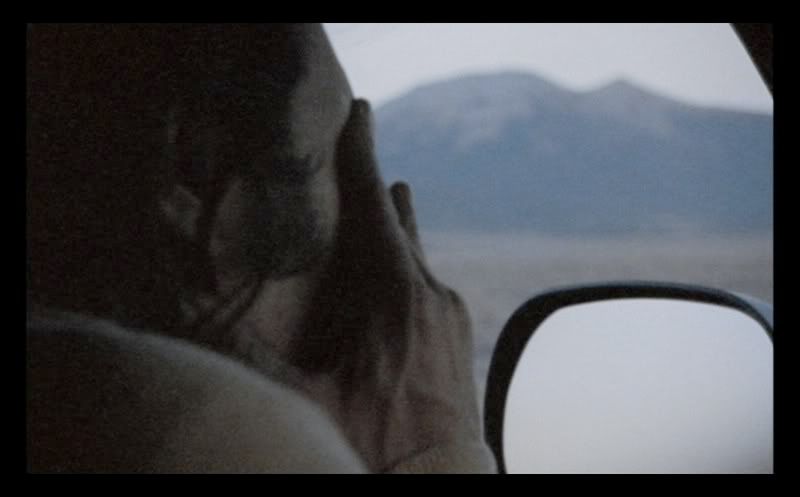
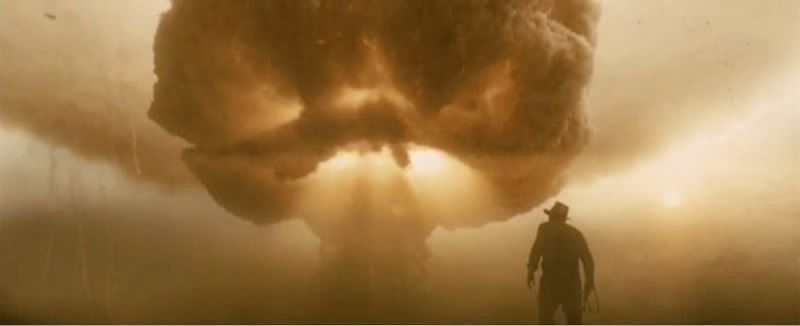
[Click right here to see what else is barking in our backyard.]
Wherein I begin to lay out some images that keep calling to one another, either in my head or in a film or in a few films or in all of the above all at once, which is what this is really about: how my mind is directed towards these things. I've chosen the series title, of course, from the MMP quote I threw up in the last conjunction. (Also: throw up.) I think one might see any of my image-essays (maybe the best, brief example) as a member of this new series, but I'll just start the number fresh cuz this will be a little different, and new.
Posted by
Ryland Walker Knight
at
12:30 AM
0
grooves
![]()
Labels: America, images, Kelly Reichardt, Maurice Merleau-Ponty, Paul Thomas Anderson, rwk, Spielberg, Vincent Gallo, woofs
Tuesday, October 07, 2008
Brutal and deliberate: Le Doulos.
by Ryland Walker Knight
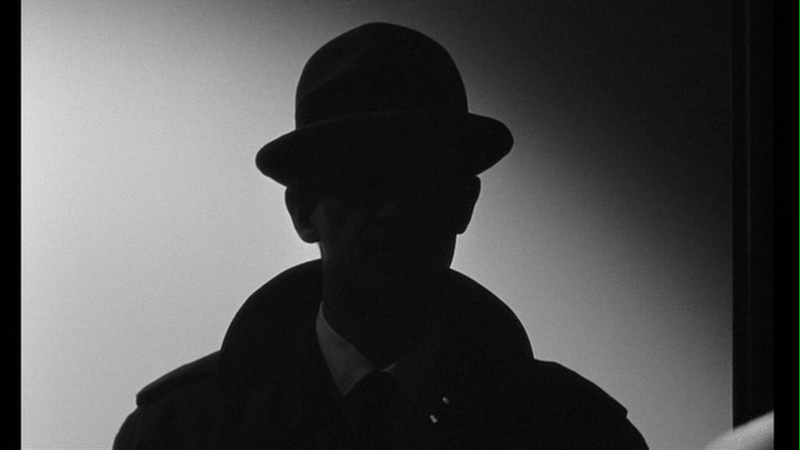
Hop on over to The Auteurs to read some words I wrote about one of Criterion's releases this week, Jean-Pierre Melville's seventh feature, Le Doulos. It's a handsome disc, and a handsome film, however ugly most of its men act. I'd say more but it's probably better to just fly through this link into that world of darkness and punches and bullets and real thug life.
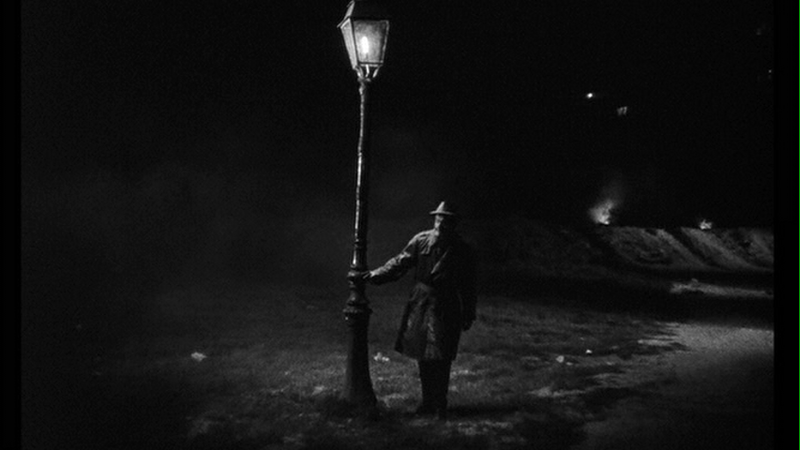
Posted by
Ryland Walker Knight
at
7:20 AM
0
grooves
![]()
Labels: criticism, ethics, Jean-Pierre Melville, linkage, rwk, screenshot, The Auteurs
Sunday, October 05, 2008
Found Facts. Telluride 2008.
Telluride #5
by Ryland Walker Knight
With little footage to edit, there was only one way for this one to come together. However, I'm rather certain anything I shot there would wind up in a similar arrangement. And the fact (these facts) remain: this is what I culled from that magic. Yet this is hardly a full picture. Just another sliver, a few dots arrayed. To get a broader view (or more personal, too? I dunno), you can take a look at the flickr set my New Good Friend Rebecca has uploaded by clicking right here. There's a lot of sky there, too. More faces, though. And faces are good. Especially these two doing this and mine about to burst past the banister. I think Drew is saying, "Get big, gurh!" past Martha and Rebecca. We laughed a lot. And, I will admit, the 'zza was better than the burritos; and my tacos fell apart real quick. So happy we skipped Hunger to play in the sun.
__________
Thomas Bangalter & DJ Falcon - So Much Love To Give (CD Promo Club Mix) (zshare)
Thomas Bangalter & DJ Falcon - So Much Love To Give (CD Promo Club Mix) (imeem)
[To whom it may concern: If you'd like me to remove these, let me know. I'm gonna trust it's cool for now. We got lots of love to give here, and that includes this song. So, thanks!]
__________
Note: Ignoramus that I am, I just discovered imeem has video options. I shall continue to upload these to my youtube channel as well, since youtube is mega reliable and (cough) attracts traffic, but I plan on hosting the imeem versions here on the blog because, well, because they look prettier and imeem somehow understands, at a fundamental level, this whole digital is mosaic thing. Oh, and, you can (please) go here to see the previous Found Facts missives a little clearer. Nope: I'm not gonna go back and change the earlier posts.
Posted by
Ryland Walker Knight
at
10:15 AM
2
grooves
![]()
Labels: ethics, formalism, Found Facts, rwk, Slavoj Zizek, Telluride 2008, travels
Saturday, October 04, 2008
GUNS BEFORE BUTTER begins: This is it.

I named this blog Guns Before Butter because I wouldn't have named it anything if that were possible, but it wasn't. The name comes from a Gang of Four song, and is of course a reference to the dilemma of a society being forced to choose between investing in military and civilian products, or more simply, between defending and feeding its people. I'm not sure how this is related to my experience in Vietnam, but for some reason it was the first thing to come to mind when I had to think of a clever title, and it conjures (to me at least) vague notions of postcolonial realpolitik.
[CLICK TEXT TO READ FULL POST]
Posted by
Ryland Walker Knight
at
1:30 PM
0
grooves
![]()
Labels: blogging, Gang of Four, guns before butter, linkage, SF, travels, Vietnam
Thursday, October 02, 2008
Reminder for the day: Saturday, Eustache begins at PFA.
by Ryland Walker Knight
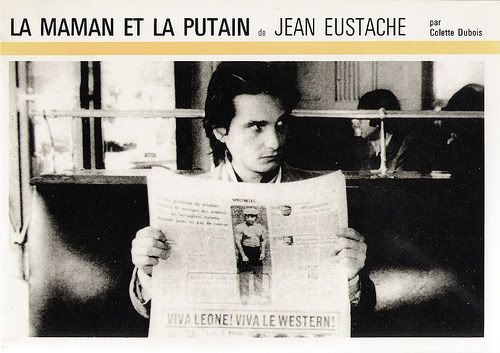
[Note the words at the bottom of the frame]
This Saturday, the 4th, sees the beginning of PFA's Jean Eustache series, No Wave, with a screening of his most famous film, an epic of hurt, or so I'm told, called La Maman et la putain. Back in February, on his podcast, Mick LaSalle recommended the Bay Area go see the film and the theatre sold out. I don't think this blog post can drum up quite that much interest, but, heck, we try. For some other words to strike up your imagination, read Rosenbaum here. Also of note, my friend Julien Guillemet told me last week that Numéro Zéro is hilarious, sordid, a must-see; of course it sounds great, as Juliet Clark has described it: "In a string of long, stationary takes, the camera watches over Eustache’s shoulder while he pours countless glasses of whiskey and [his grandmother] Odette tells the stories of her life. A number of her themes resonate with those of Eustache’s films: cruelty, male philandering, the Rosière festival of Pessac. Numéro Zéro is a return to origins—of cinema and of the self—and an experiment in narration, both restrained and deeply personal." It shows Sunday, October 12th, at 7pm. I hope to see all of the films, time and energy providing, and to write some words along the way through the month.
Monday Morning UPDATE: Why was I afraid? As much as Leaud's Alexandre is a pain, and as irritating as he can get, the film is wholly pleasurable, somehow. Part of it, no doubt, is Bernadette Lafont. More soon.
